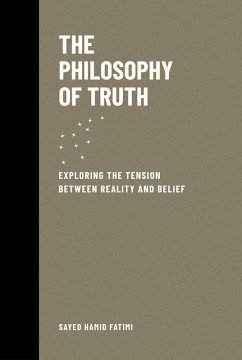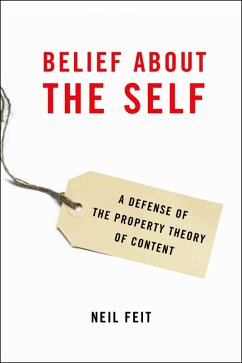
The Ethics of Belief (eBook, ePUB)

PAYBACK Punkte
0 °P sammeln!
In "The Ethics of Belief," William Kingdon Clifford presents a profound exploration of the moral implications surrounding the act of believing. The essay, originally published in 1877, adopts a rationalist approach, arguing that beliefs must be supported by evidence and that it is unethical to hold beliefs without sufficient justification. Clifford's signature literary style combines clarity of thought with rigorous logical argumentation, positioning his work in the context of Victorian rationalism and the burgeoning debate between faith and reason. Through his memorable assertion, "It is wron...
In "The Ethics of Belief," William Kingdon Clifford presents a profound exploration of the moral implications surrounding the act of believing. The essay, originally published in 1877, adopts a rationalist approach, arguing that beliefs must be supported by evidence and that it is unethical to hold beliefs without sufficient justification. Clifford's signature literary style combines clarity of thought with rigorous logical argumentation, positioning his work in the context of Victorian rationalism and the burgeoning debate between faith and reason. Through his memorable assertion, "It is wrong always, everywhere, and for anyone, to believe anything upon insufficient evidence," he challenges the reader to scrutinize their belief systems critically and underscores broader ethical considerations of intellectual honesty and responsibility in society. William Kingdon Clifford, a prominent British philosopher, mathematician, and advocate for empiricism, was influenced by contemporaneous thinkers such as John Stuart Mill and Charles Darwin. His background in mathematics and philosophy shaped his rigorous analytical approach, focusing on the relationship between knowledge, belief, and ethics. Clifford's commitment to rational inquiry and social reform resonates throughout his work, reflecting the intellectual currents of an era grappling with rapid scientific advances. "The Ethics of Belief" is a compelling treatise for anyone seeking to understand the intersection of epistemology and morality. Its impact on subsequent philosophical discourse makes it essential reading for students of philosophy, ethics, and critical thinking. Clifford's accessible yet profound arguments invite readers to reflect critically on their own beliefs and the ethical implications of holding them, making this work a timeless contribution to the discourse on rational belief.
Dieser Download kann aus rechtlichen Gründen nur mit Rechnungsadresse in A, B, BG, CY, CZ, D, DK, EW, E, FIN, F, GR, H, IRL, I, LT, L, LR, M, NL, PL, P, R, S, SLO, SK ausgeliefert werden.













